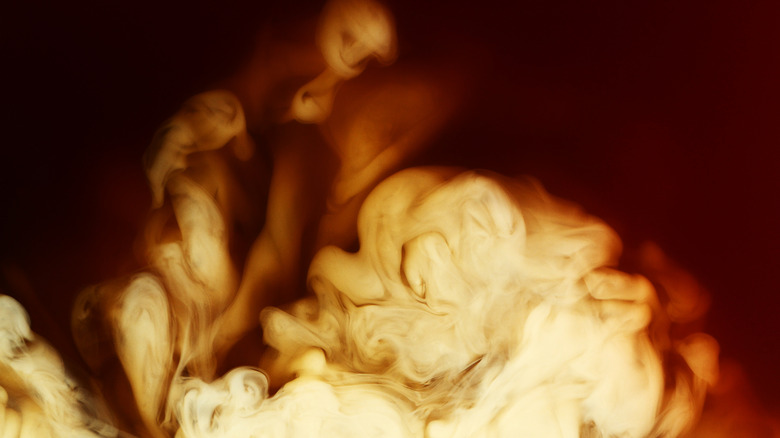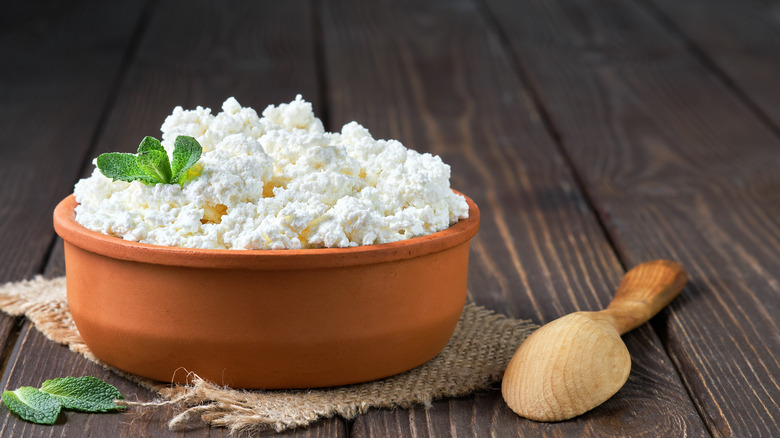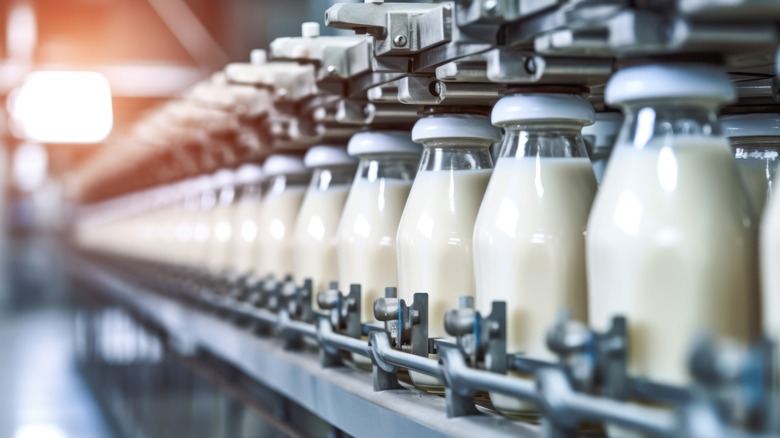Is It Safe To Drink Curdled Milk?
Milk is probably the product people are most aware of when it comes to spoilage. We've all been there: You go to drink or use some milk and find that it's suddenly filled with little white chunks. It's enough to put you off your cereal entirely.
But regardless of whether it's appealing (and most people would probably agree pretty emphatically that it is not), it's important to ask whether curdled milk is safe to drink. So is it going to hurt you if you soldier on and down it anyway? The answer is a resounding: it depends. There's a lot of factors at play here, but the biggest one has to do with the answer to the question of what caused it to curdle in the first place. Did it curdle because you cooked with it or exposed it to something that otherwise induced rapid curdling? You're fine. Did it curdle on its own in the fridge? Yeah, you should avoid drinking that.
Milk curdles when exposed to acid
It's important to note that dairy curdling isn't necessarily a bad thing; sometimes it's exactly what you want to happen. Curdling is, at its core, simply an enzymatic process that separates dairy into milk solids (curds) and liquids (whey). Think of it as a reverse emulsion; when you emulsify a substance, you're bringing two foods together, and when a substance curdles, it's getting broken into different parts. As such, a lot of dairy products are made specifically by inducing curdling: sour cream, yogurt, kefir, and quite a lot of cheeses (including the aptly-named cheese curds).
But there's obviously a world of difference between curdling on purpose and curdling unintentionally; very few people would desire a bowl of Cap'n Crunch filled with what is essentially loose cottage cheese. Milk curdles when exposed to certain other substances, primarily acidic ones (although heat and excess salt can also cause curdling). These acidic compounds cause it to break into curds — meaning that you might see it happen if you're cooking a cream sauce with lemon or vinegar, or even just when you add milk to coffee or tea that's particularly acidic. This phenomenon might not be appetizing, but the milk in question is perfectly safe.
Spoiled milk can potentially be dangerous
Spoiled milk, on the other hand, is a different issue. Though almost all milk is now pasteurized — a totally safe process that helps eliminate harmful bacteria like E. coli, listeria, and salmonella — that process can't get rid of all harmful bacteria. Moreover, if it's already been opened, milk can be exposed to new bacteria. Whether it's old or new, it's this bacterial exposure that causes curdling slowly over time, and this is the bacteria you want to avoid. A sip probably isn't going to hurt you, but if you drink a full glass of milk that's gone bad, you could suffer from stomach cramps, diarrhea, and vomiting. Even if it's possible it won't hurt you, why take the risk?
So no, it's not safe to drink curdled milk if you took it out of the fridge and it smelled deeply sour. But if you put fresh milk into your coffee and it curdled slightly, there are no health risks to drinking it (although you might want to look into coffee with less acidity).


